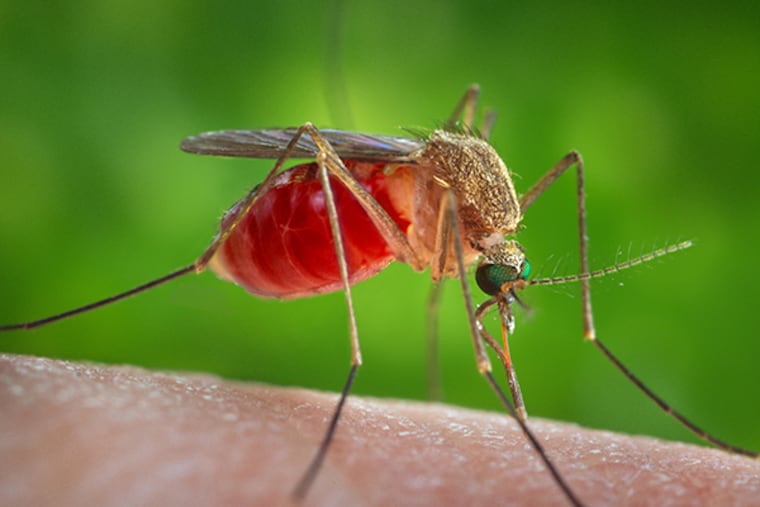Philly gets year’s first human case of West Nile virus, urges mosquito precautions
Residents are urged to eliminate sources of standing water on their property where mosquitoes breed.

Philadelphia has logged its first case of West Nile virus in a person for 2020, and officials are asking residents to take precautions to help control illness-spreading mosquitoes.
The city’s health department did not identify the person or the degree of illness.
Meanwhile, the state Department of Environmental Protection announced it had found West Nile virus in mosquito populations in 16 of Pennsylvania’s 67 counties. That includes all counties in Southeastern Pennsylvania.
“We all have a role in preventing the spread of West Nile virus,” Philadelphia Health Commissioner Thomas Farley said in a statement.
Farley said residents should not only wear mosquito repellent, but also dump any standing water, such as what collects in containers, around their homes. Effective repellents include DEET, Picardin, oil of eucalyptus, or PMD.
Mosquitoes spread West Nile virus, and though most infected people don’t get sick, one in five comes down with fever and other flu-like symptoms. And one in 150 people infected will develop a severe case that causes inflammation of the brain or spine and can be fatal. People over age 50 are most susceptible.
This year hasn’t seen a high number of cases in the state. Since 2001, the annual number of severe cases in the city has ranged from zero to 24. The last peak season was 2018.
Residents are encouraged to report mosquito problems to the health department by calling 215-685-9000, which may trigger an inspection and possible treatment.
The city Health Department’s Vector Control Services program treats more than 50,000 storm drain inlets with larvicide to help control breeding, but residents have the most power in stopping mosquitoes. Here’s how:
Get rid of anything that can hold water outside, from soda bottle caps to discarded tires.
Empty flower pots, pet food and water dishes, birdbaths, swimming pool covers, buckets, barrels, cans, and other similar items once or twice a week.
Empty and store wading pools on their side.
Clean clogged rain gutters.
Aerate ornamental ponds or stock them with fish.
Keep well-fitted screens on windows and doors.